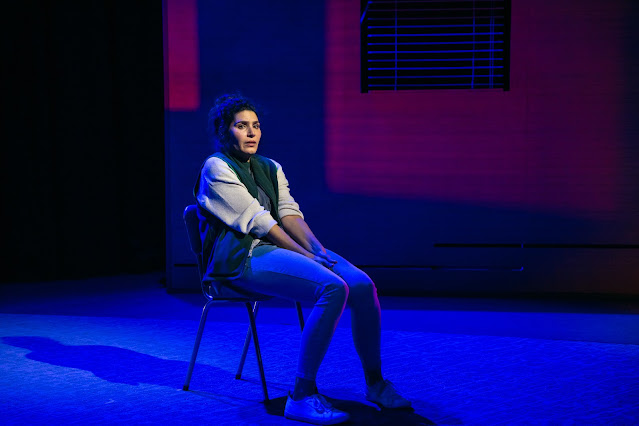In the middle of the night, a woman is woken by the low hum of a car outside. Or is it a truck? She’s already sleep-deprived from chasing her four-year-old around all day and dealing with a distant husband, who is monosyllabic at best. Whatever is happening next door at this hour is not what she needs.
Crack. The
sound of splitting wood. She looks out her window to see the fence between her
place and the neighbour’s place is being torn down. Without discussion. Without
notice. But she doesn’t feel up to confronting anyone about it. She hardly
knows the people next door. They haven’t been there that long and they have a
newborn that keeps them up most of the night as well.
The house
the woman lives in has been in the family for generations. She and her husband
could buy it from her parents or the family could sell it and they could find a
place in better condition. But with real estate prices as they are, they’ll
have to move a long way away or accept they need to move into something much
smaller.
Meanwhile, her
marriage has become strained because she’s taken a night-fill job at the local
supermarket, while he works a full-time job. They are ships passing at dinner
time and she’s finding it harder and harder to communicate with him.
Next door,
though, this house that is now exposed to them, their back and front yards
bleeding into one-another, holds a darker secret that the woman can only glean
from raised voices and a young wife and mother who seems to lock herself outside
a lot. What is happening in there and how much can she help to make things
better? Or is any intervention going to make things worse?
It’s hard
enough that the man of that house has taken it on himself to tear down the
adjoining fence. How could she find the strength to confront him over his
abuse?
Fleur
Murphy’s new play, The Fence, is a monodrama that weaves two stories
throughout – an observational domestic comedy and a confronting story about
domestic abuse and how much we should get involved in other people’s lives. The
woman’s story of her own family and marriage, though under some strain, is nothing
compared to the emotional and physical abuse that is happening over the other
side of the, well, where the fence once was.
Developed
with performer Louisa Mignone, The Fence is the perfect blend of actor
and writer. Murphy’s writing is poetic, comedic and full of gorgeous and
troubling detail; Mignone brings this woman fully to life.
Mignone’s performance
draws us into this woman’s life, while also colouring in some of the characters
at the local kinder, and the kids working at Woolies, and the smooth
real-estate-agent who is so close to selling the woman’s family home. Louisa
Mignone’s performance is startling in its honesty; warmly humorous at times and
compellingly intense in others.
Director
Alice Darling finds the right balance between the comedy and the drama, guiding
Mignone through a play about domestic violence that can be genuinely funny at
times. The contrast between the mundane details of the woman’s life and the
awfulness of her neighbour’s story requires a strong directorial hand – lest the
audience think the play is making fun of deadly serious things.
Karine
Larché’s set design is constantly
compelling – the moving pieces of the woman’s house, compared to the stern façade
of the neighbours’ creates an ever-changing tableau. Clare Springett’s lighting
is warm throughout, throwing the occasionally menacing shadow or a kaleidoscope
of colours from the neighbours’ always-too-loud television.
The Fence is a remarkably confident work, drawing on difficult subject matter but never shying away from it. And when it gets closer and closer to the realisation that there may be no easy answer, and no superhero to save the day, it plays deftly with the ambiguity of what the woman might do next. Murphy’s play knows there is no simple solution and the woman at the centre needs to learn and relearn that over and over again. Even if she’s never content with no answer as an answer.
- Keith Gow, Theatre First
Look over The Fence at Northcote Town Hall until August 20th
Photographs: Cameron Grant (Parenthesy)


Comments